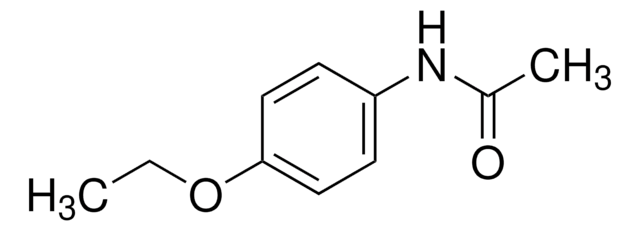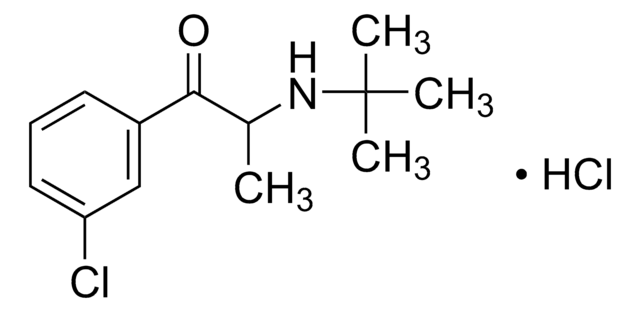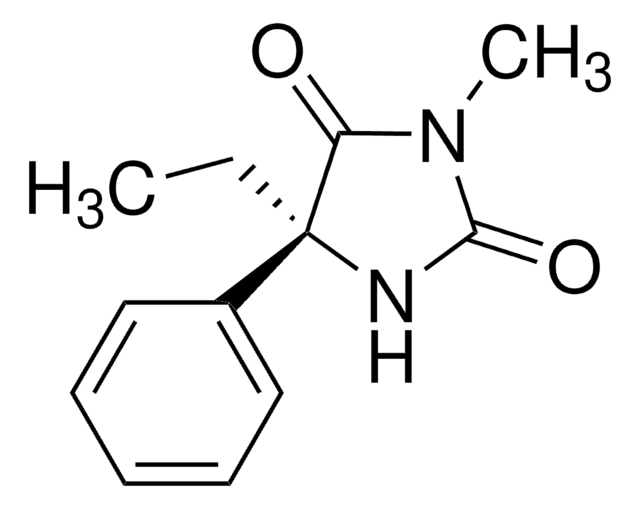77440
Phenacetin
≥98.0% (HPLC)
Synonym(s):
1-Acetyl-p-phenetidin, 4′-Ethoxyacetanilide, N-(4-Ethoxyphenyl)acetamide, p-Acetophenetidide, Acetophenetidin
About This Item
Recommended Products
Quality Level
Assay
≥98.0% (HPLC)
form
crystals
mp
133-136 °C (lit.)
SMILES string
CCOc1ccc(NC(C)=O)cc1
InChI
1S/C10H13NO2/c1-3-13-10-6-4-9(5-7-10)11-8(2)12/h4-7H,3H2,1-2H3,(H,11,12)
InChI key
CPJSUEIXXCENMM-UHFFFAOYSA-N
Looking for similar products? Visit Product Comparison Guide
Application
Biochem/physiol Actions
Signal Word
Danger
Hazard Statements
Precautionary Statements
Hazard Classifications
Acute Tox. 4 Oral - Carc. 1B
Storage Class Code
6.1C - Combustible acute toxic Cat.3 / toxic compounds or compounds which causing chronic effects
WGK
WGK 3
Flash Point(F)
Not applicable
Flash Point(C)
Not applicable
Personal Protective Equipment
Choose from one of the most recent versions:
Already Own This Product?
Find documentation for the products that you have recently purchased in the Document Library.
Customers Also Viewed
Our team of scientists has experience in all areas of research including Life Science, Material Science, Chemical Synthesis, Chromatography, Analytical and many others.
Contact Technical Service









